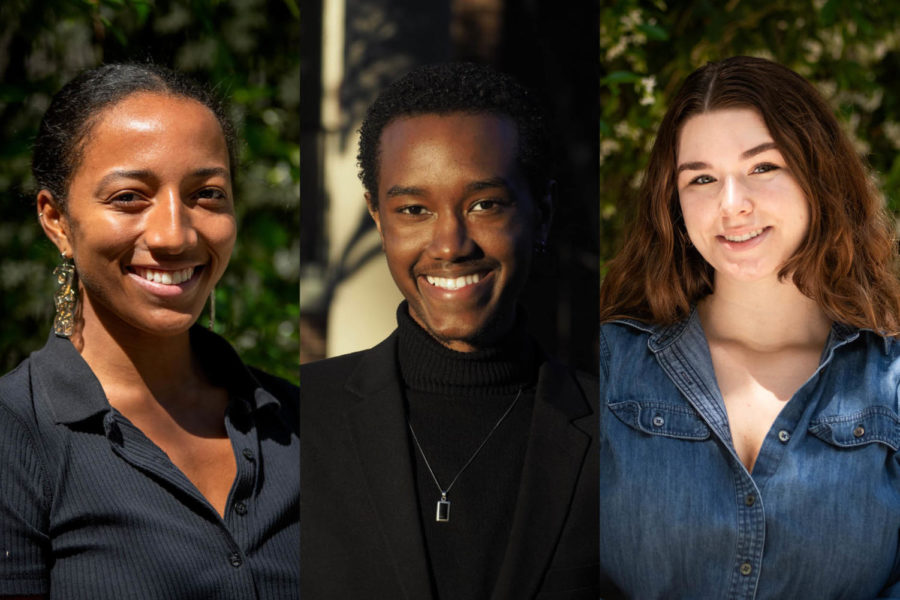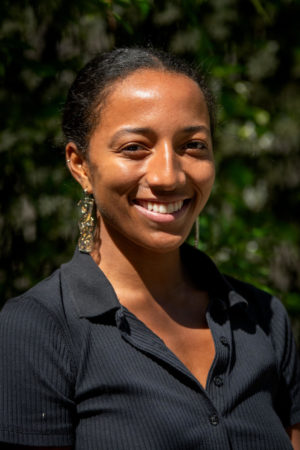‘Completely different culture’: Tulane’s in-state recruiting riddle
April 27, 2022

Lindsey DuBose is an outlier. She is from New Iberia, a small city deep in Louisiana Cajun Country known for its bayous and Tabasco-brand hot sauce. Few of its young citizens take the two-hour drive to attend Tulane University — one of the state’s most prestigious schools.
But thanks to the promise of scholarship and a spur-of-the-moment campus visit, DuBose made a rare choice.
She applied to Tulane.
Four years later, she is still grappling with the contrast between her hometown and her college experience, but she is dedicated to her state and determined to improve her university.
“When I graduate, I want to stay in New Orleans and stay in Louisiana for a little bit longer — give back to my state because I love it so much,” DuBose said.
It is a common story for Tulane’s undergraduates from Louisiana, comprising nearly 16% of the undergraduate population. Lured by the offers of generous scholarships and education opportunities, many Louisiana students make the choice to attend Tulane. But here, they encounter both good and bad — a world class education and the opportunity to meet students from across the country coupled with cultural differences and out-of-staters’ often stereotypical views of Louisiana.
It is a dynamic Tulane admissions is fighting to fix. Last year Tulane announced Louisiana Promise — a program committed to increasing the university’s number of students from Louisiana. It changed the way Tulane recruits in-state students, amidst a growing national debate around fair access to higher education.
“There were some pretty intense conversations that were had with our leadership at the time as to, we need to stop this, we are losing these amazing students,” Louisiana’s Senior Admissions Counselor Kristin Guidry said. “And the response was, well, what can we do about it?”
Mission to recruit
In May 2020, Tulane applications and diversity numbers were rising, but admissions was still falling short. They were losing smart Louisiana students to state schools who offered them better financial aid.

The Louisiana Promise was their response. It guarantees no loans to any admitted Louisiana student whose family makes under $100,000 a year.
It also includes the Louisiana Center for College Access — a program that focuses on general college application tips — and 50 full tuition scholarships for in-state students in Tulane pre-college summer programs.
The first Louisiana Promise students came to Tulane last fall. Guidry, who has spent time over lunch this year getting to know some of these students, is immensely proud of the program.
“It really is life changing,” she said.
The plan is still a work in progress, Guidry said. She spends forty-five days of the year visiting high schools from Baton Rouge to Shreveport, telling students about Tulane.
“Everybody gets visited,” Guidry said. Her goal is to reach each school in the state every two years.
But some of those students and their families think twice about Tulane.
“It usually comes down to their scholarship offers and their financial aid offers,” Guidry said.
But, she said, “Especially in certain parts of the state, convincing the parents and families that we are a campus even though we’re located in New Orleans … it’s not Bourbon Street running through our campus.”
Contrasting cultures
The students who come still face hurdles.
DaSean Spencer, a junior from New Orleans, grew up just a few miles from Tulane. He went to high school in the same Uptown neighborhood Tulane students call home. But when he got here, he was surprised.
“It just felt like I was in a completely different state, a completely different culture, even though I was exactly where I’ve always been,” he said.
He deeply appreciated his freshman Tulane Interdisciplinary Experience Seminar class and connections he made with fellow Louisiana students. But he still felt different.
“I didn’t even feel southern until I went to Tulane,” he said.

Spencer is a political science major, and said he has experienced condescending behavior from some students in his classes.
“They would really trash Louisiana for our Republican dominance,” he said. “It just made me super uncomfortable because growing up here, I never looked at it as a huge negative thing.”
Most Tulane undergraduates come from outside of Louisiana. The Northeast was the largest represented region as of fall 2021. Of the 16% of Louisiana undergraduates at Tulane, only 3.92% come from outside the New Orleans metro.
Kennedy Walker is one of them. A senior from Baton Rouge and intern for undergraduate admissions, Walker came to Tulane because she wanted a change.
“I was just like, I want to meet new people,” Walker said. “People that aren’t like the people that I’ve grown up with.”
She said the enduring cultural dominance of schools like Louisiana State University can lead the state’s high school seniors to think less about Tulane.
“I think a lot of people are just comfortable staying at home,” Walker said. “And, you know, their parents went to LSU, their grandparents went to LSU. So it’s like, why wouldn’t I go?”
Creating community
To change that, DuBose, Spencer and Walker all said Tulane must grow their in-state outreach, and the Louisiana Promise is a great start.
But Spencer said another step should be making Louisiana students feel comfortable once they get to Tulane.
“A lot of Tulane’s resources go into getting Louisiana students to come there,” he said. “But the resources just evaporate once we’re here.”
“I think that one of the centers they have should have a tier that’s specific for Louisiana,” DuBose said. “There should be advisors or knowledge coaches that are specifically resources for Louisiana students.”

The three students each described feeling an instant connection when they meet others from Louisiana.
“We understand each other,” DuBose said. “It’s just like an unwritten thing.”
But there is no easy way for them to find each other. Tulane does not currently have any group for students from Louisiana.
Guidry and Tulane admissions want to solve the riddle too — and the issue holds big implications.
“It’s important to me to level the playing field,” Guidry said. “The Louisiana students who take us up on our offer, they are truly going to be the leaders of Louisiana moving forward.”
Walker urged anyone considering Tulane to imagine themselves here, talk to people from Louisiana on campus and dare themselves to step out of their comfort zone.
Guidry said she thinks recruiting work and the Louisiana Promise will raise in-state numbers over time and attract more students like DuBose to campus.
It will just take a few more outliers.
An earlier version of this story incorrectly stated that New Iberia, Louisiana is three hours away from New Orleans and known for its swamps. It is two hours away and sits along a bayou.






















Stefanie • May 12, 2022 at 6:55 am
And yet they couldn’t find a space for my daughter. She has wanted to attend Tulane since she was a child. She’s the definition of the best and the brightest of Louisiana. 4.6 GPA, 4th in her class, hundreds of hours of community service, senior class president, recipient of numerous honors and awards. I could fill this space with her achievements.
She was deferred then waitlisted.
Programs committed to recruit in state students? “Everyone gets visited”The recruiter didn’t even bother to show up to her school on college night, which is located 25 minutes from Tulane. She’s now committing to Baylor.
Andrew • Apr 28, 2022 at 9:06 pm
The only riddle is why it took so long to recognize the advantages of encouraging and challenging the ‘best and brightest’ of students from Louisiana to a Tulane education.